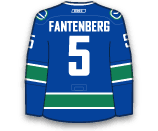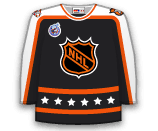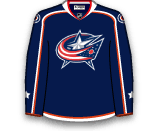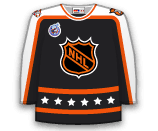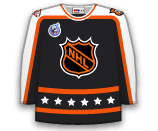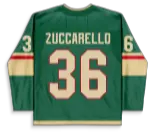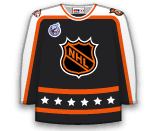NHL Trade Tracker
Are you looking for all the latest NHL trade news from around the league? Then you’ve come to the right spot! Daily Faceoff’s NHL trade tracker provides up-to-the-minute updates on the latest personnel moves and trade rumours from all 32 franchises. When your favourite player gets dealt for future considerations, you’ll be the first to know!
Along with our NHL trade tracker, we also provide information on how hockey trades work, the strategy behind these moves, and how the latest NHL trades could impact your sports betting strategy.
It’s important for fans, sports bettors, and fantasy managers to stay informed on the latest NHL transactions. If you can keep tabs on the latest moves in the NHL, this can assist you in making intelligent pickups or trades in fantasy hockey and help shape your bets based on the new personnel added to a team.
NHL Trade Rules
NHL trades can be quite lucrative, with players, prospects, and draft capital moved to complete a deal. While there are a variety of ways to finalize trades, they all need to abide by the trade rules and regulations set by the league. Even the San Jose Sharks can’t take on everyone’s bad contracts.
Learn more about the rules around trades below so you can better understand how trades work, and the transactions made in our NHL trade tracker.
Salary Cap
In order for any NHL trade to be processed successfully, all parties involved must abide by the league’s salary cap rules. The current NHL salary cap is $88M, meaning that each team’s total payroll must fall within the budgetary restriction.
The salary cap in the NHL is considered a “hard cap,” meaning that no team can exceed it. While the limitations around roster construction can be strict, there are still ways for teams to legally exceed the set limit that won’t cost teams a first-round pick.
In the playoffs, teams are technically able to exceed their cap space through the long-term injured reserve (LTIR). The LTIR allows teams to place injured players on extended leave (24+ calendar days or 10 NHL Games) and fill their roster spots based on their cap space heading into the regular season.
If a player is on the LTIR heading into the postseason, they can be activated regardless of if their re-addition to the team puts them over the salary cap.
Roster Limit
For any active NHL roster, they can only dress 23 skaters. While they’re able to move players up and down through their farm system (AHL/ECHL/International Players), they must abide by this player limit when it comes to active players dressed in each game.
This plays a big factor in determining trades, as teams will need to make salaries work to make the move official and fit the current team’s available roster spots.
Depth is an incredibly important part of any successful NHL team, so filling out their roster with talented players is pivotal to their success. Each roster spot holds immense value.
NHL Trade Deadline
The NHL trade deadline is the last opportunity for teams to make moves between each other during the regular season. The trade deadline generally falls after the All-Star break so teams can make their last-ditch efforts before the playoffs begin. Players must be on the team’s roster by the deadline at 3 PM to be eligible for the NHL playoffs.
Technically, teams can still make trades after this point if they don’t qualify or have been eliminated from the postseason. These trades will not take effect until the next season, but the transactions can still go through.
The deadline can make or break a team’s playoff hopes, making it a dramatic and hectic period for hockey fans and managers alike. Be sure to regularly check back with our NHL trade tracker around the deadline so you don’t miss any latest moves from across the league.
Understanding the Strategy Behind NHL Trades
NHL teams may want to make a trade for a number of reasons. Often, teams make trades when they are looking to head in a certain direction, whether this means trying to improve and compete for the Stanley Cup or tank and enter a rebuild.
A team that feels it has a strong enough unit to make a deep run into the postseason will likely forgo some of its draft capital to acquire proven talent and enhance its winning capabilities.
Conversely, a team that has hit a wall in terms of success and doesn’t feel they have what it takes to compete in the playoffs may opt to trade away valuable assets in favour of draft picks or promising prospects.
Other NHL trade strategies may involve team culture/personnel fits. If a player doesn’t fit within a coach’s game plan or doesn’t have chemistry with his line mates, teams may opt to deal him to find a better fit.
For daily fantasy sports players or hockey bettors, understanding the logic behind NHL trades can play a big part in your success. If you have a solid understanding of a team’s needs and the value brought by particular players, you can use this to gain an edge on your roster moves and bets.
Check out the most recent roster moves from around the league with our NHL trade tracker, and be sure to analyze the strategy used by each team when making their next move.
How NHL Trades Impact Sports Betting
NHL trades can have a major impact on sports betting, both in terms of daily games and futures. Players moving from team to team can alter a squad’s potential success and on-ice production.
For example, if a team decides to trade their leading goal-scorer, you can rightfully assume that their overall scoring numbers may drop as a result. This means a team you once would’ve taken the Over on may be better suited for the Under due to their new lineup.
Acquiring an all-star player for futures bets can dramatically influence the betting lines, increasing one team’s value while dropping another. If you’ve already placed a futures bet and the team you wagered on makes a trade, this could possibly increase or lower the value of your original ticket, depending on the result of the roster change.
Daily fantasy hockey players can also be impacted by NHL trades as you will need to see how a player fits into their new setting before including them in your drafted lineup.
Be sure to watch for any of the latest transactions by using our NHL trade tracker to stay informed on all the roster changes occurring throughout the league.
NHL Trades FAQs
Who decides NHL trades? NHL trades are decided between two or more team general managers. The front office’s job is building a winning team. Building a winning team means discussing trades with other general managers across the league.
When can players be traded in the NHL? During the NHL regular season, players can be traded up until the trade deadline. The deadline is the official cutoff point for when teams can no longer make moves between each other. Players can also be traded throughout the offseason.
Why do they trade players in hockey? Teams trade players in hockey for a variety of reasons, but generally, it is done to find success, whether that is in the short term or long term. Teams may trade their top players in search of draft picks if they are undergoing a rebuild, whereas contending teams may look to acquire talent to boost their playoff chances.
How often are NHL players traded? Trades are a common occurrence throughout the NHL and happen often. Some years feature less trades than others, it all depends on each teams needs and the availability of attractive talent.

